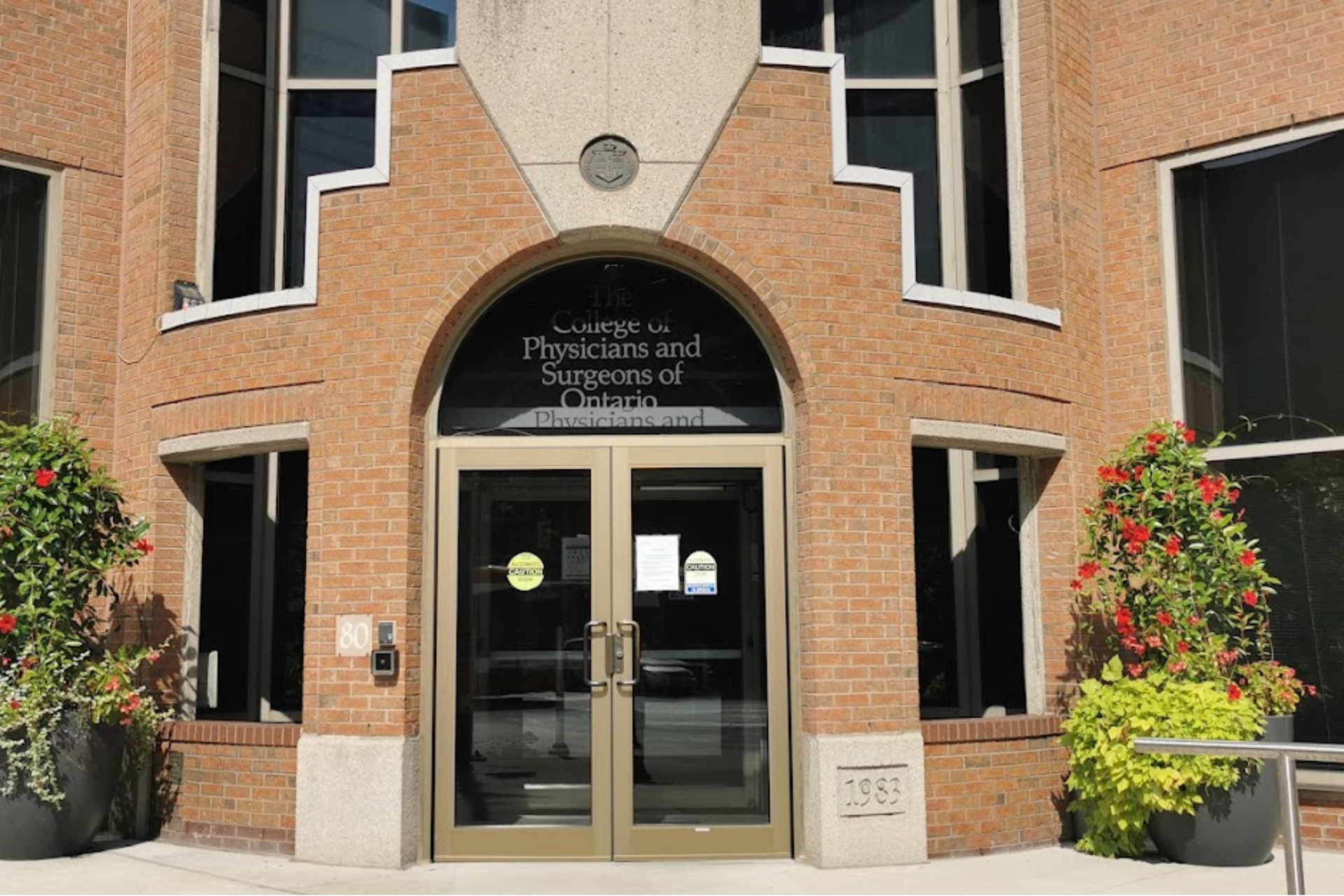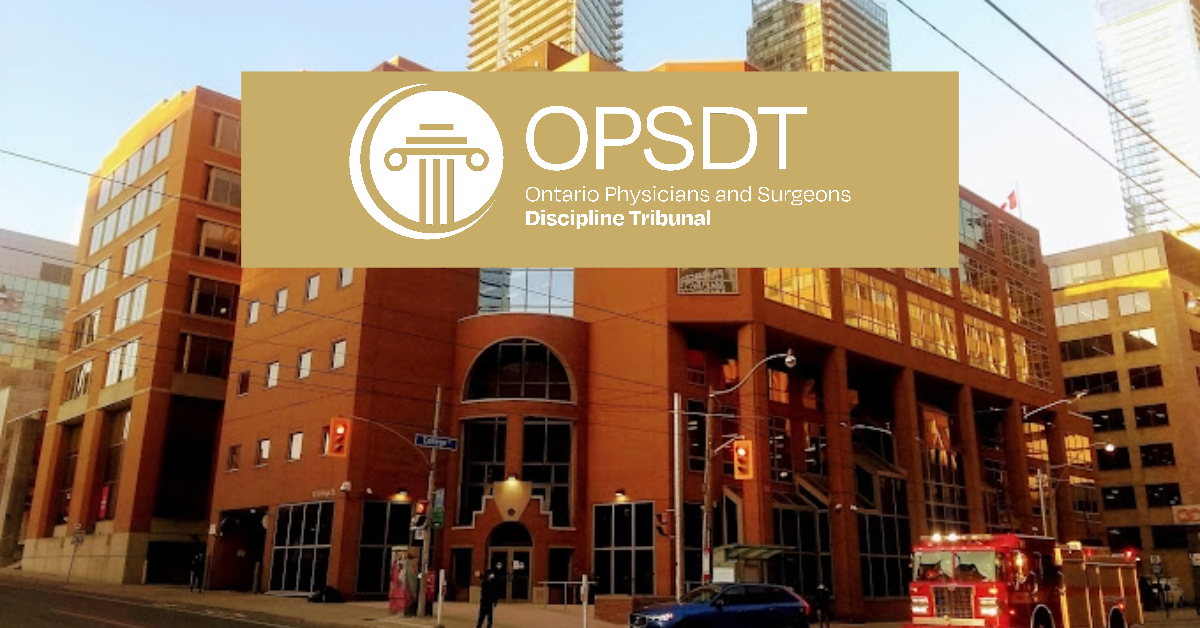
Nurse Alters Morphine Record, Patient Dies: CNO Orders Permanent Resignation
A Profound Breach of Trust in End-of-Life Care In CNO v. Lindsey Coyle, the Discipline Committee of the College of Nurses of Ontario addressed one

The College of Physicians and Surgeons of Ontario (“CPSO”) regulates the practice of medicine in Ontario. Physicians are required to be members of the CPSO to practice medicine. The role of the CPSO, its authority and powers are set out in the Regulated Health Professions Act (“RHPA”), the Health Professions Procedural Code under the RHPA and the Medicine Act.
The CPSO will investigate a complaint against a physician made by the public. The complaint process is started by submitting a complaint online. The CPSO will assign an investigator to obtain medical records, a response from the physician, and occasionally an independent expert report (particularly where the CPSO feels it lacks expertise to decide the matter).
Invariably a physician who is met with a CPSO complaint will contact the Canadian Medical Protective Association (“CMPA”) who will in turn engage a lawyer to assist the physician through the process. Sometimes the physician will engage an independent expert opinion and will submit it in conjunction with their response.
With the above information, the Inquiries, Complaints and Reports Committee (the “Committee”) of the CPSO will review everything in private and will deliver a written Decision and Reasons summarizing the care received by the patient, the areas of concern, and their view as to whether there are any demonstrable competency issues that may require remedial or disciplinary action. The process from complaint to decision typically takes 8 – 12 months.
The Committee’s decision will typically contain a preamble that explains the role of the CPSO in the investigation into physician conduct. This generally includes the following standard passage:
The Committee cannot award or recommend financial compensation. The Committee does not determine liability or causation and its function is not to punish physicians. The Committee appreciates the participation of the Complainant. Public engagement aids the College in protecting the public interest and improving the quality of physicians’ care throughout the province. The Committee acknowledges the Respondent for demonstrating professional accountability in responding to the Complainant’s concerns.
After reviewing the care, the Committee may do nothing, issue a caution, order some kind of remedial action, or refer the physician to disciplinary proceedings.
Section 36(3) of the RHPA is reproduced below:
Evidence in civil proceedings
(3) No record of a proceeding under this Act, a health profession Act or the Drug and Pharmacies Regulation Act, no report, document or thing prepared for or statement given at such a proceeding and no order or decision made in such a proceeding is admissible in a civil proceeding other than a proceeding under this Act …
The Courts have interpreted this provision strictly. There is little doubt that, like Vegas, what happens at the College stays at the College.
So then why bother making a complaint to the CPSO when you know that anything that comes of it cannot be used in a medical malpractice lawsuit for compensatory damages?
There are a number of compelling advantages to making a complaint to the CPSO:
There are unfortunately no shortage of patients in Ontario who are unhappy with the care they received from their treating doctor.
There are, however, a significant number of medical malpractice claims that on their face seem trivial or unduly difficult to litigate. Even for an experienced medical malpractice lawyer, it can be at times overwhelming to make decisions on whether to open a new medical malpractice matter which will require a significant investment in time and money to determine whether there is a viable claim.
This is particularly so with respect to cases where the patient is a poor historian, the medical records are likely to be voluminous, and where some kind of judgment may have been involved by the physician, the particulars of which may not be apparent in the medical records alone.
In these cases, a CPSO complaint would help to identify potential areas of concern that the patient or or the lawyer may not have considered. It would also result in getting access to the medical records, which could be costly to obtain. Finally, it may invite a response from the physician that although inadmissible in a civil proceeding may nevertheless provide some clues to the defence theory of the case.
You really do get a lot from the complaint. You will receive a written opinion on potential standard of care issues, production of medical records, and a response from the physician. You may even receive an independent expert opinion. The best part of it is that it costs absolutely nothing.
Even better, you do not need to have or be a lawyer to complete the complaint form. It has been part of my standard advice to potential medical malpractice clients to make a complaint. Even though I am not retained to represent them, I will strongly encourage them to come back to me with the decision from the CPSO. Often it confirms my suspicion that there is unlikely to be a viable claim, but every so often, it becomes clear that there is potentially something worth looking into further.
There is nothing more aggravating than first learning the defence theory of causation years into the litigation after tens of thousands of dollars spent on expert reports and opinions.
If you start a complaint at the CPSO, it will force the physician to turn their mind to potential defences to their conduct, which will probably (though not necessarily) mirror any defences advanced in a civil lawsuit. Having this knowledge in advance will allow you to present these theories to your experts early on to properly gauge their relative force. This can save you time, money and grief in the future.
Similarly, you may learn of facts not contained in the medical records through the response of the physician that may not come out until the lawsuit is well underway. Again, having this information earlier on in the litigation can be advantageous as you develop your own theory of liability.
Furthermore, you may be able to gather some interesting history about a particular physician if he or she is known to the CPSO. This is information that you would otherwise not be able to locate online through the CPSO’s website.
There are no cons to making a complaint that would typically preclude me from recommending that a complaint be made. There are, however, some important downside considerations that should be recognized:
The Committee will not address causation. It may be harsh with respect to the conduct of a particular physician, and it may state that such conduct may have contributed to a poor outcome. It will not typically use language suggestive of causation being established on a civil standard of proof.
Therefore, in a case where causation seems to be the main (and perhaps most uncertain) issue, pursuing a CPSO complaint to aid in a civil investigation may have limited benefit.
If you have a concern about your doctor’s care that you want to address, but you still rely on seeing that doctor for ongoing care, a CPSO complaint will invariably cause an end to that relationship. You physician will likely send you correspondence after receiving your complaint that they (appropriately) perceive there to be a conflict that would preclude an ongoing relationship.
Although this should not necessarily stop you from initiating a complaint if you have a serious concern, it should perhaps be considered in terms of the timing of the complaint. You may want to wait until you organize care with another physician before making the complaint.
The CPSO complaint process may provide a goldmine of helpful information to encourage you to ultimately pursue a civil claim. However, this is of little value if by the time you receive this information, the limitation period has already expired.
Given that the CPSO can take between 8 – 12 months to fully investigate a claim (though sometimes longer to be sure), the benefit of relying on the CPSO to screen potential civil cases may be limited only to potential claims that have recently arisen.
Some patients may become confused about the difference between a CPSO complaint and a lawsuit. This can be detrimental where the person is adamant that they want to see what comes of the complaint before deciding to pursue a lawsuit and where a potential limitation period will obviously expire in the interim.
Most people will appreciate the difference with some explanation. In fact, in some cases, particularly in those cases that seem to have merit but are not economically viable, a patient may forego investigating a medical malpractice claim in favour of a CPSO complaint in the hopes that it raises awareness and cause a change in the system.
The CPSO complaint process can be a helpful way to screen a potential medical malpractice claim without having to incur a lot of legal costs. Although most complaints find no wrong doing on the part of the physician, the CPSO will often uncover obvious breaches in the standard of care that might otherwise not be apparent simply from a review of the medical records.
The Committee however will not deal with causation, and even in cases where there has been found to be substandard conduct, there may not be a causal nexus between such care and the injuries sustained. Therefore, despite the utility of having the CPSO review a case for potential merit, it will still be necessary to promptly consult with independent experts to prove standard of care and causation if it is decided to pursue the claim.
What the CPSO can do is provide some reassurance that a particular case does appear to have merit, which can in turn help guide decision making with respect to pursuing a a claim in medical malpractice.

A Profound Breach of Trust in End-of-Life Care In CNO v. Lindsey Coyle, the Discipline Committee of the College of Nurses of Ontario addressed one

What College of Physicians and Surgeons of Ontario v. Thirlwell, 2026 ONPSDT 5 Means for Patients and Public Trust In College of Physicians and Surgeons